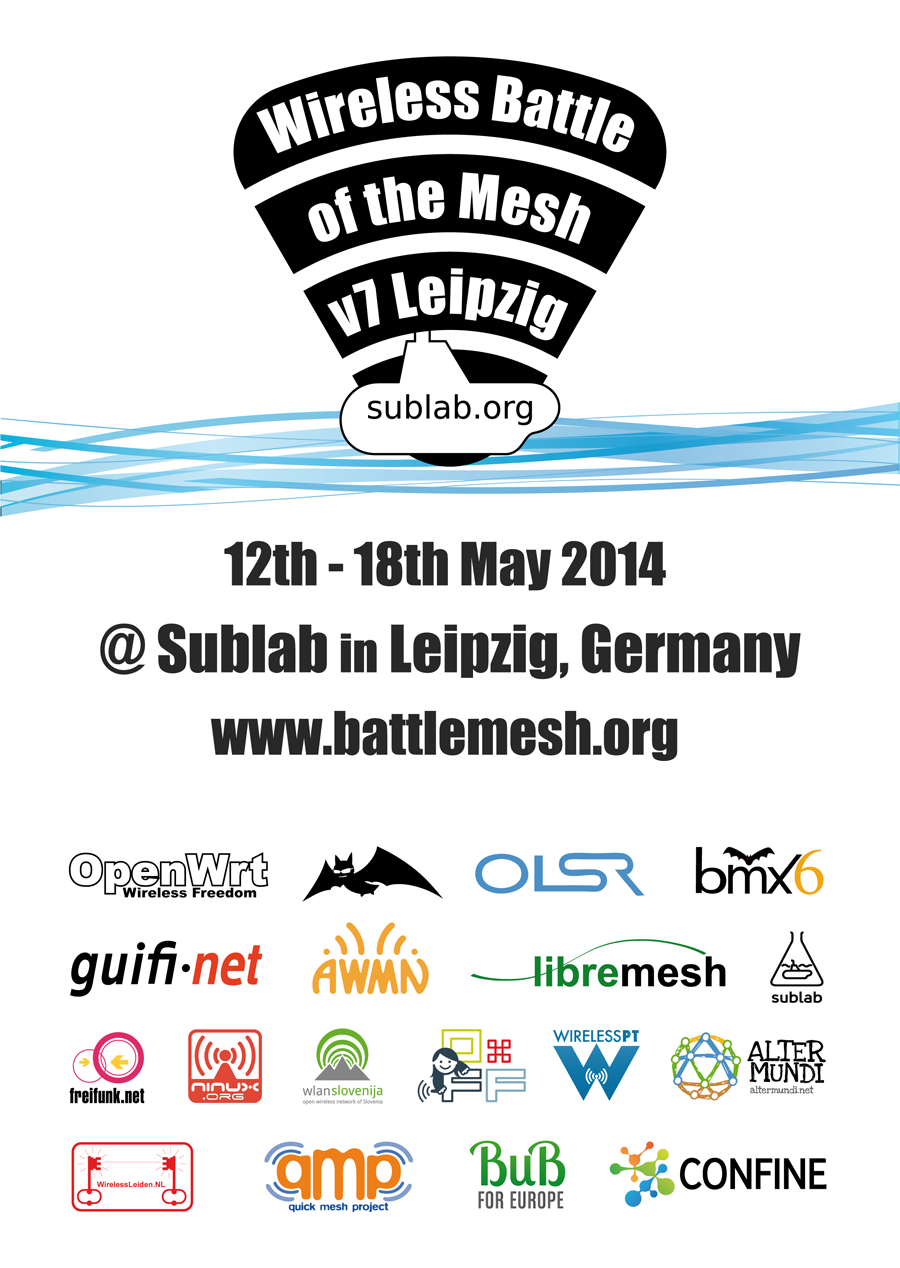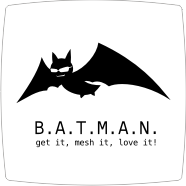Open-Mesh: Batman-adv 2015.0 released
The B.A.T.M.A.N. team is pleased to announce the immediate availability of batman-adv 2015.0 - a bugfix and maintenance release introducing only fixes and and minor cleanups, providing a safe and pleasant update for everyone. As the kernel module always depends on the Linux kernel it is compiled against, it does not make sense to provide binaries on our website. As usual, you will find the signed tarballs in our download section:
https://downloads.open-mesh.org/batman/releases/batman-adv-2015.0/
as well as prepackaged binaries in your distribution.
Thanks¶
Thanks to all people sending in patches:
- Anatoliy Lapitskiy <anatoliy.lapitskiy@gmail.com>
- Antonio Quartulli <antonio@meshcoding.com>
- Himangi Saraogi <himangi774@gmail.com>
- Jan-Philipp Litza <janphilipp@litza.de>
- Joe Perches <joe@perches.com>
- Marek Lindner <mareklindner@neomailbox.ch>
- Martin Hundebøll <martin@hundeboll.net>
- Nicolas Dichtel <nicolas.dichtel@6wind.com>
- Rasmus Villemoes <linux@rasmusvillemoes.dk>
- Simon Wunderlich <sw@simonwunderlich.de>
- Sven Eckelmann <sven@narfation.org>
and to all those that supported us with good advice or rigorous testing:
- Andreas Pape <APape@phoenixcontact.com>
- Andrew Lunn <andrew@lunn.ch>
- David Binderman <dcb314@hotmail.com>
- Jeff Kirsher <jeffrey.t.kirsher@intel.com>
- Julia Lawall <julia.lawall@lip6.fr>
- Linus Lüssing <linus.luessing@web.de>
- MK <mailing.m1@kkk-web.de>
- Philipp Psurek <philipp.psurek@gmail.com>
- Ray Gibson <booray@gmail.com>
- Tobias Hachmer <tobias@hachmer.de>
batman-adv¶
The batman-adv compat code has been freed of a problem on old Linux kernel versions (< 2.6.39) causing a malfunction of packet forwarding to the assigned bridge. Packets entering the batman-adv mesh via the batX interface were not considered for interface bonding due to an erroneous comparison. This regression introduced by the routing code abstraction has been fixed. Also addressed has been a false warning triggered by the network coding lockdep class when running lockdep to find problems in the locking routines. The code also benefited from the usual set of kernel enhancements and checkpatch cleanups.
batctl¶
batctl imported some minor updates from the kernel header files. These include only code style cleanups and some misspelled words in comments.
alfred¶
alfred gained the ability to execute a specified command whenever the managed data changes (either new data arrived, stale data was purged or an update with an actual change was triggered). The executed command receives the IDs of the changed data as arguments.
The alfred server process now automatically drops privileges after the initial setup phase. This is a standard security practice to reduce the potential damage of a malicious attack in case an exploitable flaw were to be discovered. Documentation explaining how to start alfred as non-root process is available. In light of these changes, the packet validation code underwent additional scrutiny which led to improved checks on valid packet length and header validation.
Dataset version numbers are now correctly changed when the data is only updated and not added. This can be tested with the new verbose mode of the alfred client. It shows the version information of each received dataset.
Happy routing,
The B.A.T.M.A.N. team





